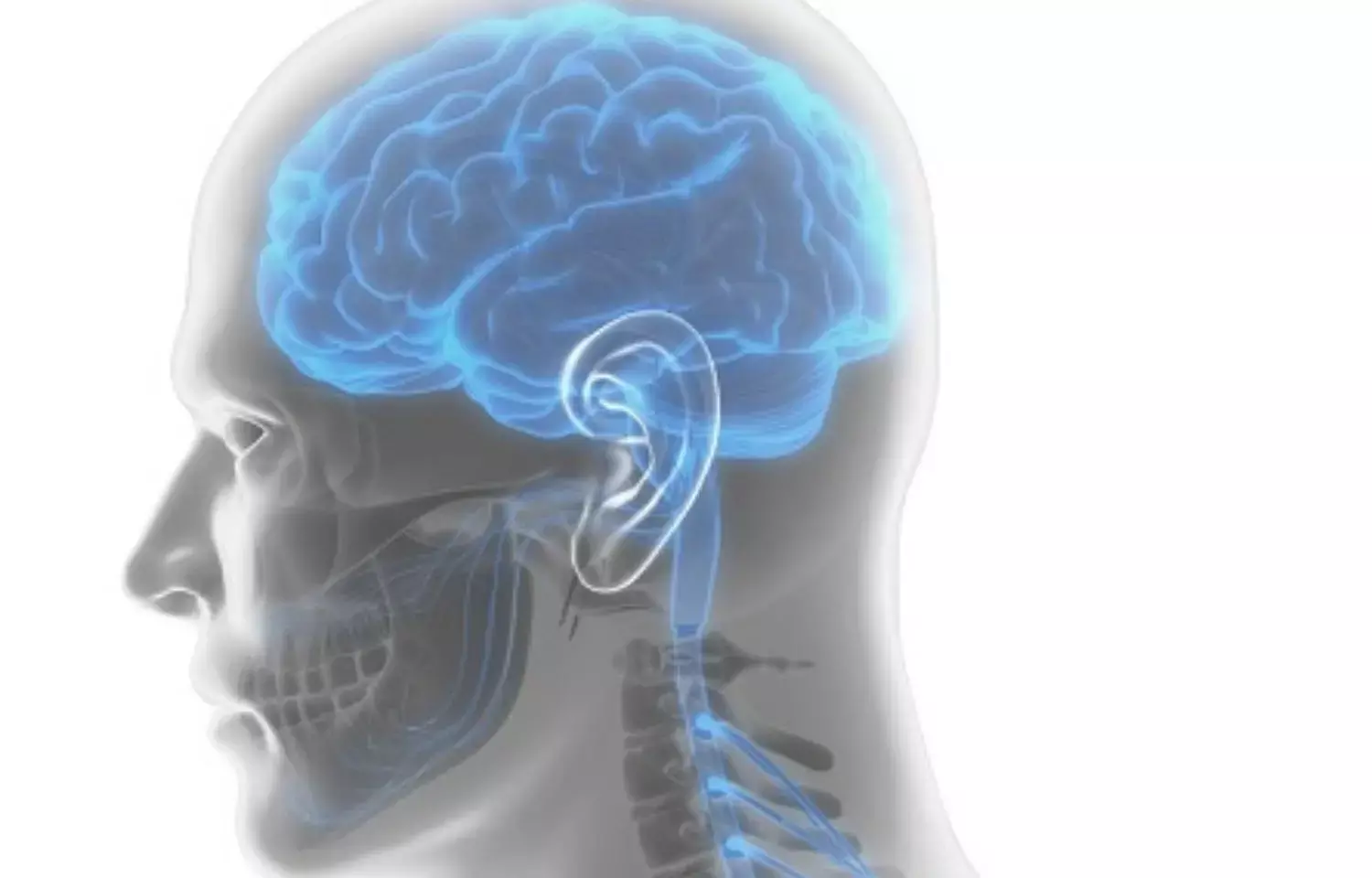- Home
- Medical news & Guidelines
- Anesthesiology
- Cardiology and CTVS
- Critical Care
- Dentistry
- Dermatology
- Diabetes and Endocrinology
- ENT
- Gastroenterology
- Medicine
- Nephrology
- Neurology
- Obstretics-Gynaecology
- Oncology
- Ophthalmology
- Orthopaedics
- Pediatrics-Neonatology
- Psychiatry
- Pulmonology
- Radiology
- Surgery
- Urology
- Laboratory Medicine
- Diet
- Nursing
- Paramedical
- Physiotherapy
- Health news
- Fact Check
- Bone Health Fact Check
- Brain Health Fact Check
- Cancer Related Fact Check
- Child Care Fact Check
- Dental and oral health fact check
- Diabetes and metabolic health fact check
- Diet and Nutrition Fact Check
- Eye and ENT Care Fact Check
- Fitness fact check
- Gut health fact check
- Heart health fact check
- Kidney health fact check
- Medical education fact check
- Men's health fact check
- Respiratory fact check
- Skin and hair care fact check
- Vaccine and Immunization fact check
- Women's health fact check
- AYUSH
- State News
- Andaman and Nicobar Islands
- Andhra Pradesh
- Arunachal Pradesh
- Assam
- Bihar
- Chandigarh
- Chattisgarh
- Dadra and Nagar Haveli
- Daman and Diu
- Delhi
- Goa
- Gujarat
- Haryana
- Himachal Pradesh
- Jammu & Kashmir
- Jharkhand
- Karnataka
- Kerala
- Ladakh
- Lakshadweep
- Madhya Pradesh
- Maharashtra
- Manipur
- Meghalaya
- Mizoram
- Nagaland
- Odisha
- Puducherry
- Punjab
- Rajasthan
- Sikkim
- Tamil Nadu
- Telangana
- Tripura
- Uttar Pradesh
- Uttrakhand
- West Bengal
- Medical Education
- Industry
FDA authorizes wearable neuromodulation device for fibromyalgia

Food and Drug administration has authorized use of Quell® neuromodulation device as an aid in reducing the symptoms of fibromyalgia in adults with high pain sensitivity.
Fibromyalgia is a chronic condition characterized by generalized pain, fatigue, poor sleep, memory and concentration impairments, mood disorders and other disabling symptoms. These individuals experience low health-related quality of life and are twice as likely to be hospitalized as someone without fibromyalgia. The prevalence of fibromyalgia is estimated to be 2 to 6 percent of the U.S. adult population (5 to 15 million people).
The cause of fibromyalgia remains unclear, but scientific studies point to abnormalities in the way the central nervous system processes normal sensations and pain. Although a number of drugs are used to treat fibromyalgia only pregabalin, duloxetine and milnacipran have been approved by the FDA. These drugs are associated with side effects and generally poor adherence. Prior to Quell, the FDA had not approved or cleared any medical devices for treatment of fibromyalgia.
The data submitted by NeuroMetrix in support of the De Novo request included results from a double-blind, randomized, sham-controlled trial (NCT03714425). A total of 119 subjects with fibromyalgia were enrolled and randomized to a standard (active) or modified (sham) Quell device for 3-months of at-home use. In a pre-specified subgroup analysis of subjects with high pain sensitivity (N=60), Patient Global Impression of Change (PGIC) was 1.25 (95% CI [0.25, 2.24]) points higher in the active arm compared to the sham arm (p=0.015).
PGIC was the primary study outcome measure and represents a subject's overall belief about the efficacy of treatment on a 7-point categorical scale. The high pain sensitivity subgroup was defined based on Quantitative Sensory Testing and should represent the majority of fibromyalgia patients in real-world practice.
In the intention-to-treat (ITT) analysis of all randomized subjects (N=119), multiple secondary outcome measures were positive. For example, 57% of those on active treatment exhibited a clinically meaningful improvement in health-related quality-of-life (Fibromyalgia Impact Questionnaire, FIQR) compared to 34% that received sham treatment (p=0.014).
Subjects in the active treatment arm reported statistically significant improvements in 19 of the 21 symptoms comprising the FIQR instrument, including pain, sleep, fatigue, balance and the ability to carry out typical daily activities. Some of the trial results were published in the Journal of Pain Research recently.
A total of 9 adverse events were reported during the study and deemed to be definitely or possibly related to device use (4 in active arm, 5 in sham arm). All events were minor and self-limited. The most common occurrence was a rash under the Quell electrodes.
"There is an unmet need for effective and safe fibromyalgia treatments. Receiving this De Novo authorization is a key milestone towards the Company's goal of making Quell available as a prescription treatment option for people living with fibromyalgia," said Shai N. Gozani, M.D., Ph.D., Chief Executive Officer, NeuroMetrix.
"We believe physicians treating patients with fibromyalgia will be interested in Quell's potential clinical benefits and safety profile. Our initial commercialization efforts will focus on rheumatologists and pain medicine physicians. We anticipate launching in the fourth quarter, with initial prescriptions processed by an online pharmacy partner before the end of this year."
NeuroMetrix was advised by MCRA, LLC in this submission.
Indications
Quell Fibromyalgia is a transcutaneous electrical nerve stimulation (TENS) device indicated as an aid for reducing the symptoms of fibromyalgia in adults with high pain sensitivity. The device may be used during sleep. The device is labeled for use only with compatible NeuroMetrix electrodes.
Limitations
The sale, distribution, and use of Quell Fibromyalgia is restricted to prescription use in accordance with 21 CFR 801.109. Many participants in the clinical study were also taking medication for fibromyalgia and it was difficult to assess the effects of the device compared to medication.
The product labeling should be reviewed for a complete list of contraindications, precautions and warnings.
Dr Kamal Kant Kohli-MBBS, DTCD- a chest specialist with more than 30 years of practice and a flair for writing clinical articles, Dr Kamal Kant Kohli joined Medical Dialogues as a Chief Editor of Medical News. Besides writing articles, as an editor, he proofreads and verifies all the medical content published on Medical Dialogues including those coming from journals, studies,medical conferences,guidelines etc. Email: drkohli@medicaldialogues.in. Contact no. 011-43720751


